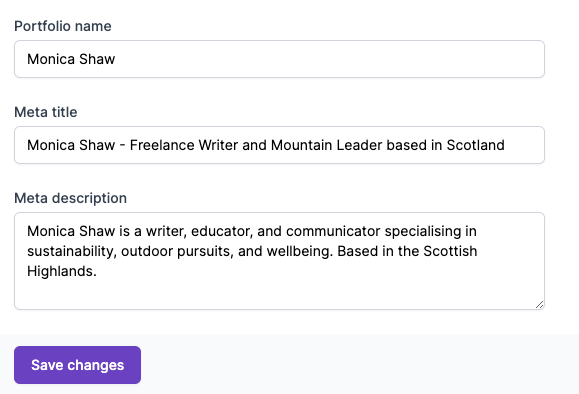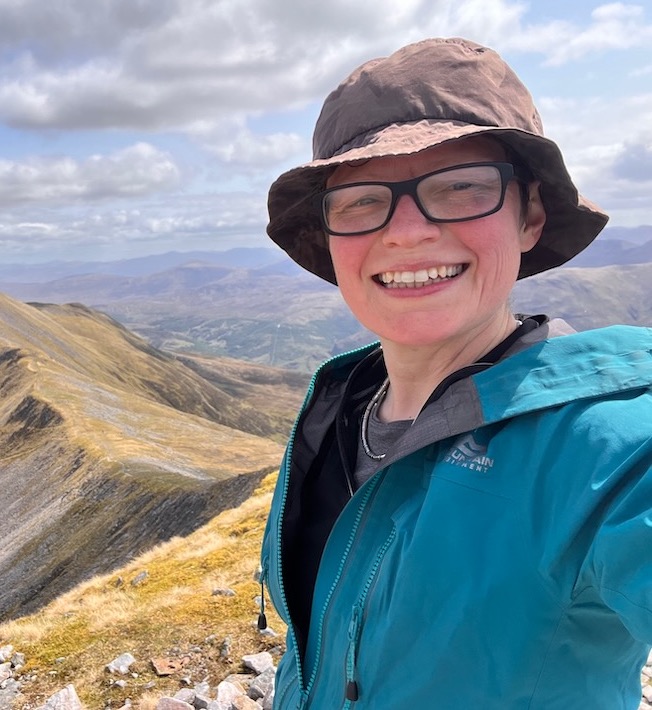
SEO Basics and Best Practices for Online Writing Portfolios
Written by Monica Shaw
One of our users recently wrote in with a question about SEO, which basically boiled down to this: How does Google find my website? Moreover, how does Google find my website if the website is created by a third party (like Writer's Residence)?
SEO is something that every writer should think about (though few writers do) because it's an important step in optimising your writing website for marketing purposes. The bottom line is: You want people to find you. Search engines are how people find things. Thus, you want people to find you when they search for (1) your name or (2) keywords associated with the things you write about.
In this article I explain:
- What's the deal with keywords and where should I be using them?
- How we've built SEO into the back end of our online writing portfolios
- SEO best practices for writers
What do we mean by "keywords" and where should you use them?
People talk about SEO like it's some kind of dark art but in reality it's not rocket science. You can optimize your writing portfolio with a bit of common sense.
SEO keywords are the words you use to make sure your website shows up when people search for something related to what you offer. If you're a Michigan-based journalist who specializes in science writing, your keywords might be:
- Michigan science journalist
- Science writer in Michigan
Much like writing careers, keywords work best when you have a niche. Don't overthink keywords, but do make sure that you use descriptive words to describe your work in key areas of the website:
- Headers
- The first paragraph of a page
And two techy areas: the "meta title" and "meta description" which appear in search engine results:

- Meta Title - This is the text that search engines display as the title of your website. Aim for about 50-60 characters. Tip: Use your name and some descriptive keywords, for example: “Laura Davis - Chicago-based Food and Drink Freelance Journalist”
- Meta Description - This is the text that search engines show below the title to summarise your website. Use this to describe your portfolio in a little more detail and expand on your expertise. Aim for about 160 characters. For example: “Freelance journalist covering food and drink for publications including The Guardian, Sunday Times, Telegraph, British Vogue, and Conde Nast Traveler.”
You might be wondering how you can influence these areas of your writing portfolio. How you do it depends on the service you're using. Here's how we do it with Writer's Residence:
How we've built SEO into the back end of our online writing portfolios
Here's what we do to help search engines find our users' webpages:
- We auto generate the meta title based on the name you supply on your account
- We use special header tags to describe the main heading of your web page, again based on your name
- When you create your website, we "tell" Google you exist so that it indexes your web page from the get-go and makes you immediately findable in search results.
- We also give you the option on every page to customize your meta title and meta description:

SEO Best Practices for Writers
The most important thing for searchability is CONTENT, and this is something you have complete control over, no matter who creates your website. To that end, there's loads you can do, but here are a few ways to get started that are most important and easiest to implement:
- Invest in your own domain name, and pick a domain name that relates to the keyword you want people to find you on (usually your own name, e.g. monicashaw.com).
- Decide which keywords are most important to your business and use them throughout the content of your website.
- Link to external and internal pages within your content.
- Use social media (Facebook, Twitter, Google+, etc) to create external links to your content
- Use Google Analytics to track your stats; adjust and adapt your keywords as you learn how and why people find your website. (And yes, Writer's Residence does have a facility for integrating Google analytics from the Settings page)
For more info, check out Moz's Beginner's Guide to SEO, a really useful primer that's miraculously not boring as sin.
Ready to share your online writing portfolio?
Don’t forget, we’re on hand to help you launch your portfolio during your 30 DAY FREE TRIAL.
Get started for FREE